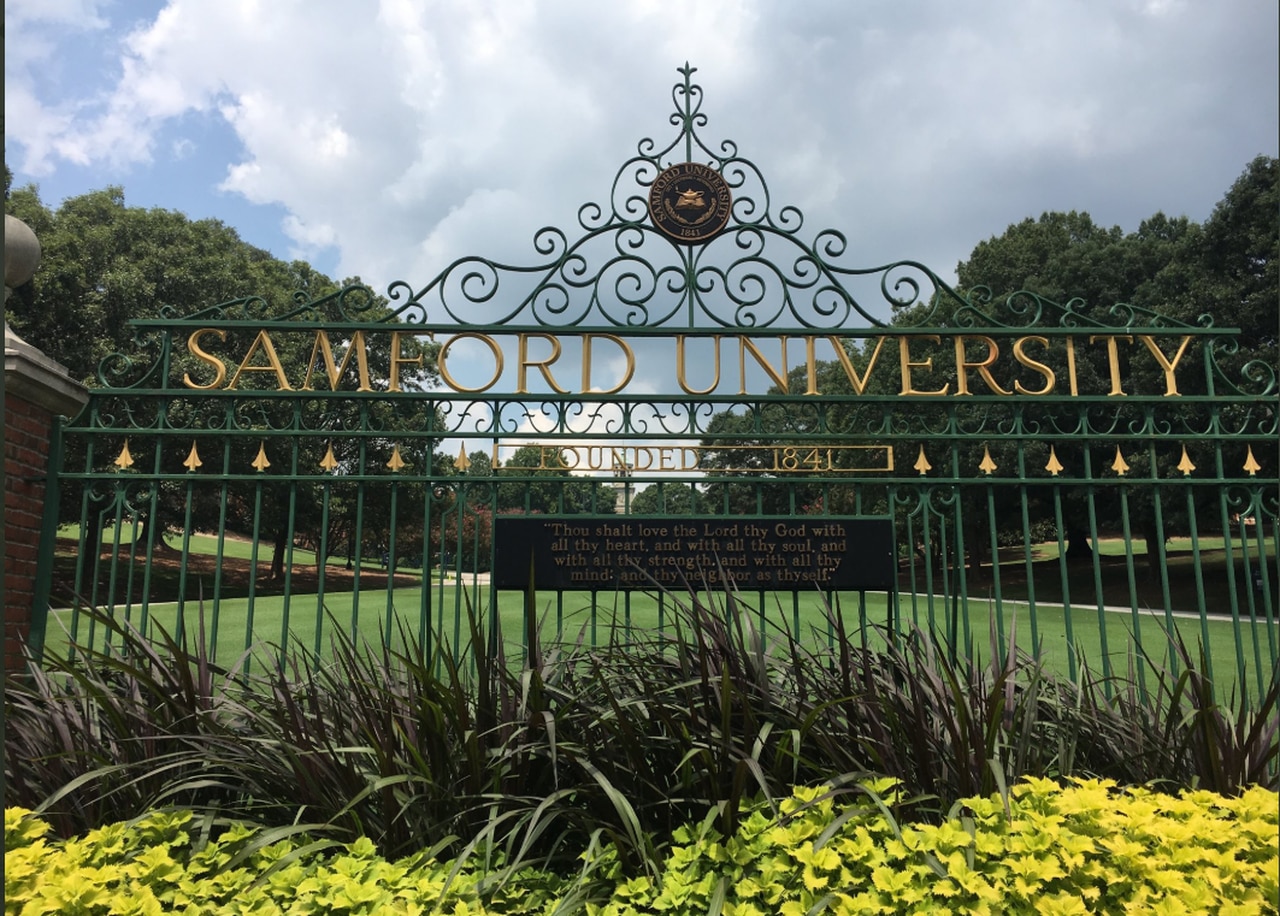Samford University denies student application to form LGBTQ group
When Angela Whitlock, a Cumberland Law student at Samford University, was looking for student groups to join last year, she noticed something was missing.
There were groups for Black, Hispanic and Native American law students, student athletes, women, and various political organizations. But none were for LGBTQ students.
So last fall, she and more than 50 students at Cumberland formed OUTLaw, an identity-based organization that aims to support and affirm LGBTQ students.
“We just tried,” she said, “Because why not? There’s nothing that we’re doing that is going to hurt anyone.”
OUTLaw chapters are currently present on other Alabama college campuses and across the country, but Samford, which houses the private, Christian law school, refuses to acknowledge the organization – and has denied others like it in the past.
“It’s not shocking because it’s more of the same of what we’ve seen, insofar as discriminatory practices,” said Brit Blalock, a 2008 graduate who leads Safe Samford, an unofficial group supporting LGBTQ students. “But what’s particularly strange about this is it’s happening inside the law school, which has not been bound to the same student organization process that the undergrads have.”
In a letter on Oct. 20, Samford President Beck Taylor informed Whitlock that the university had formally denied her application.
“I am ever mindful of the array of views and opinions on LGBTQ-related issues in contemporary culture, including among Samford’s students and employees,” Taylor wrote. “Civil discourse on matters of human sexuality and other subjects at the forefront of the public debate will always exist at Samford, and the university is not retreating from those discussions.
“Nevertheless, extending official university recognition to a student organization that advocates for beliefs and behaviors contrary to the religious values of Samford would be inconsistent with my responsibilities as president.”
The letter, Whitlock said, came after a meeting between OUTLaw members and the administration, in which Taylor allegedly said he feared that allowing the group to exist would invite future opportunities for LGBTQ students to “advocate for a larger agenda” that the university is “simply not willing” to allow.
“If by ‘agenda’ President Taylor means that we intend to let the LGBTQ+ population at Samford know that they are welcomed and loved just the way they are, then by all means his accusations are well-founded,” the group wrote in a statement Monday. “But in contrast to the imaginary ‘harm’ contemplated by President Taylor, the LGBTQ+ students at Samford’s law school—in addition to those in its undergraduate program—must now deal with the real and immediate harms posed by the anti-LGBTQ+ stigma which the University’s position endorses.”
Samford officials confirmed the contents of the letter, but said Taylor was out of the country and unavailable to answer any questions about the meeting. They did, however, note that the president had an interest in further dialogue with the students.
Recognition process
Undergraduate student groups at Samford must go through an extensive, 13-step process to get officially recognized. But at the law school, groups are only required to submit bylaws and a couple of forms to the director of student services, the dean and an associate dean, Whitlock said.
Whitlock said the group was able to submit their forms, but was later told to get approval through the main campus. Students later met with Taylor, who asked them to give him the summer to look into what other Christian universities were doing.
Identity-based organizations often have access to additional university resources, like reserving a room in the library or hosting speakers or events on campus. Without recognition, the group is also unable to identify with the college or use its name in any social media or imagery.
Students say the decision also has deeper ramifications for queer students on campus – especially as the university continues to turn away LGBTQ-affirming groups.
In 2017, the university halted recognition of Samford Together, an undergraduate LGBTQ advocacy group. The group made it through two years of a grueling application process, including a nearly unanimous approval from the faculty senate, but was eventually shot down by the former university president.
Last month, the school came under fire for dropping LGBTQ-affirming denominations from a campus ministry fair. The university later defended its stance by saying it doesn’t have a policy to restrict denominations from campus, but that “the university has a responsibility to formally partner with ministry organizations that share our beliefs.”
“It’s all a part of a move further and further right, even though the student body, the faculty, the staff is not moving that direction,” said Blalock, who has been at the center of several of those fights.
Whitlock said she plans to keep pushing for recognition. But some members are already feeling the blow.
“I am going to have a diploma that I have worked very hard the past three years to earn and don’t even feel proud to hang that diploma on my wall,” said member Grant Patterson, a third-year law student. “Because, when I look at it, it’s going to have that reminder that I wasn’t welcome there as an LGBTQ person.”
Patterson came to Cumberland because he wanted to practice law in Alabama – and eventually advocate for civil rights in his home state. He grew up in Opp and was raised Southern Baptist. He didn’t come out as gay until college, he said, but found a community at Troy, where he helped organize the school’s first Pride event in 2019.
It was an incredible feeling, he said, to see drag queens on a rural Alabama campus.
But now he’s worried that his peers at Cumberland won’t get to feel that same sense of support.
“I think that they are moving in the wrong direction,” he said. “It’s just sort of another reason to roll your eyes at the state of Alabama.”
